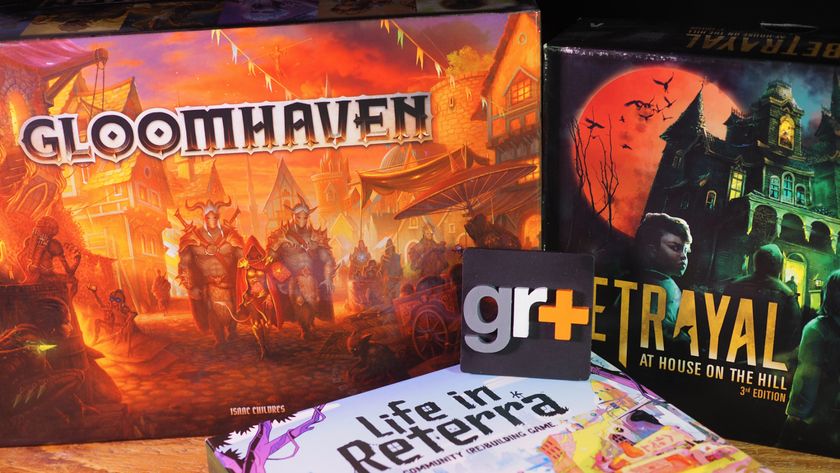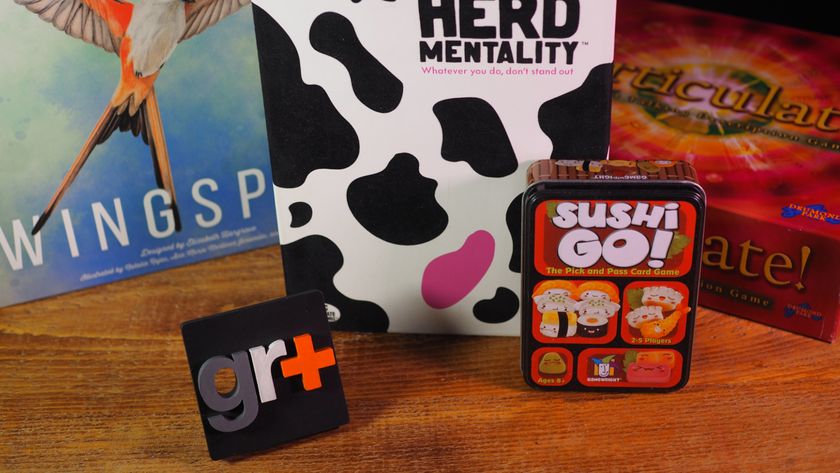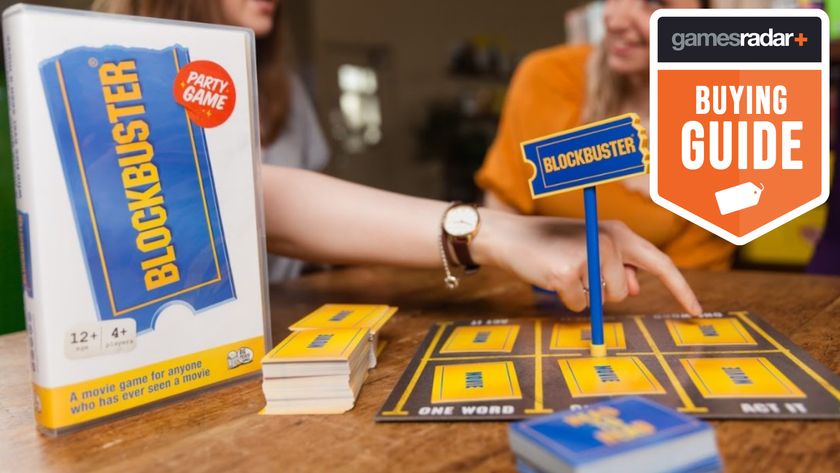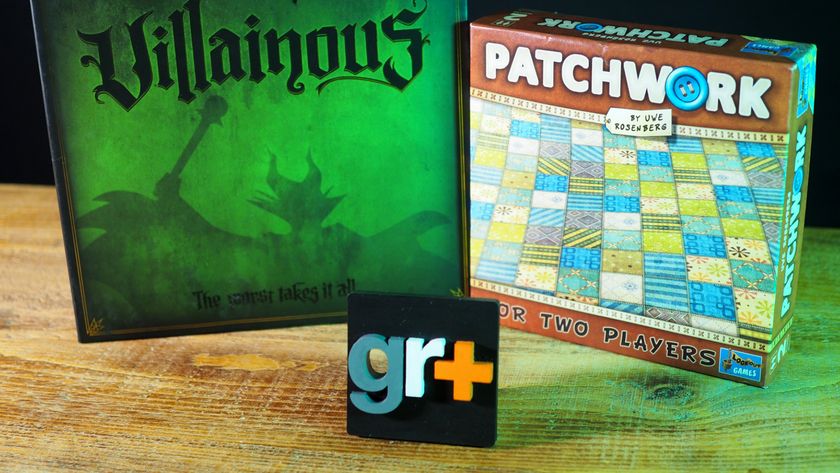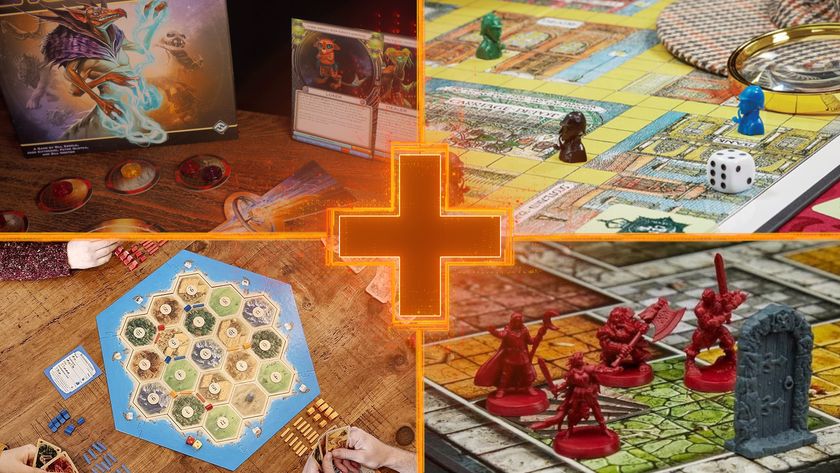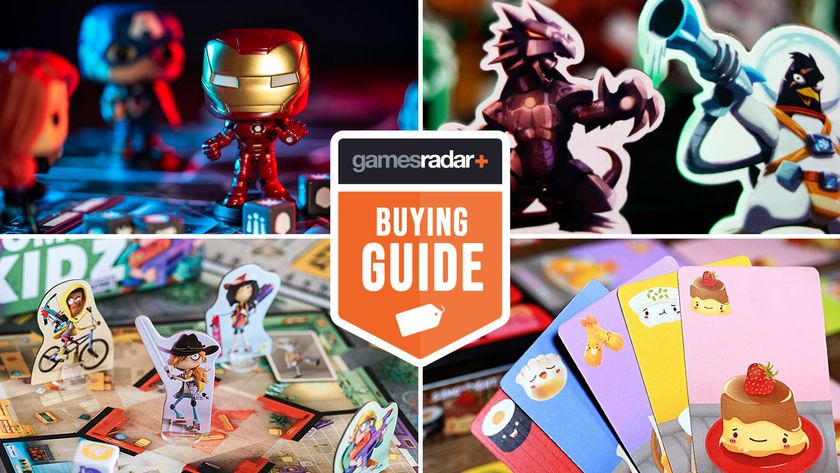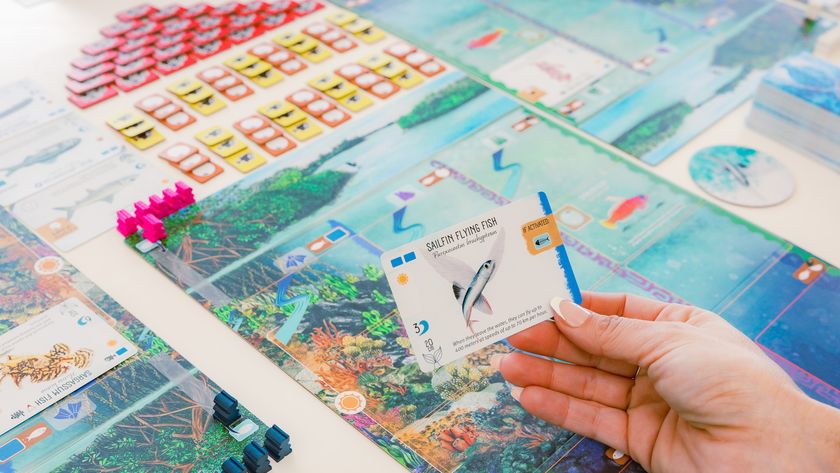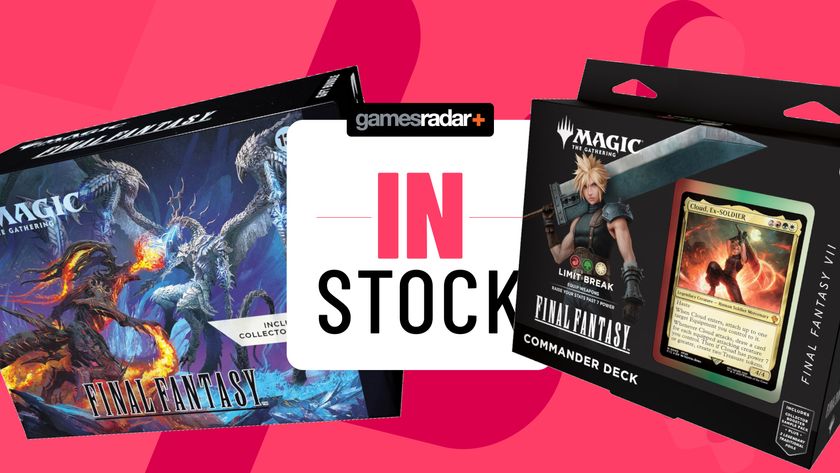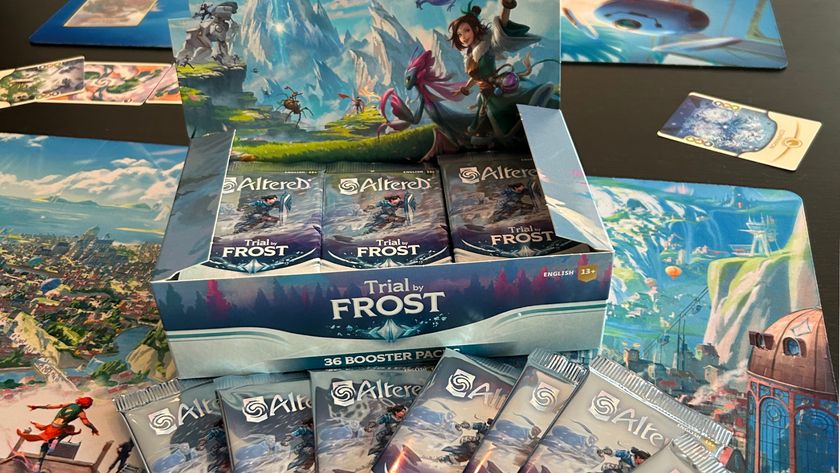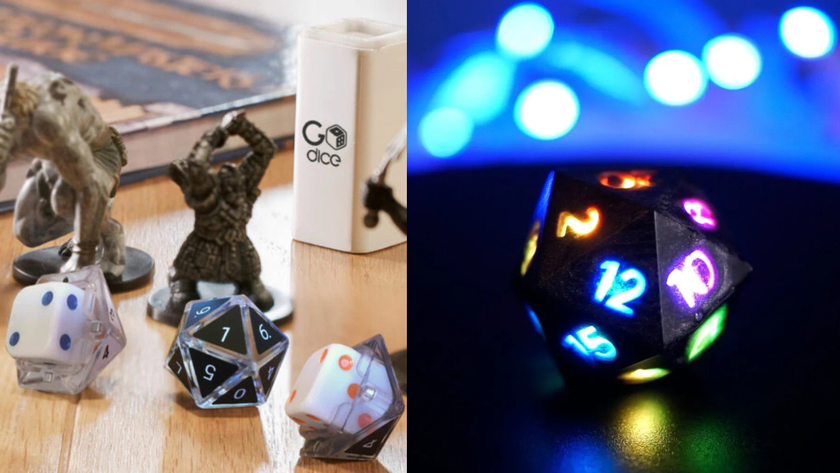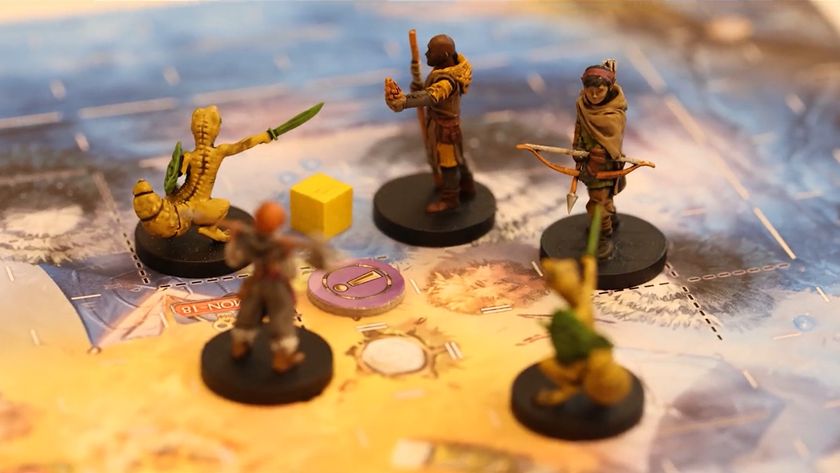Types of board games, explained
There's a lot to choose from
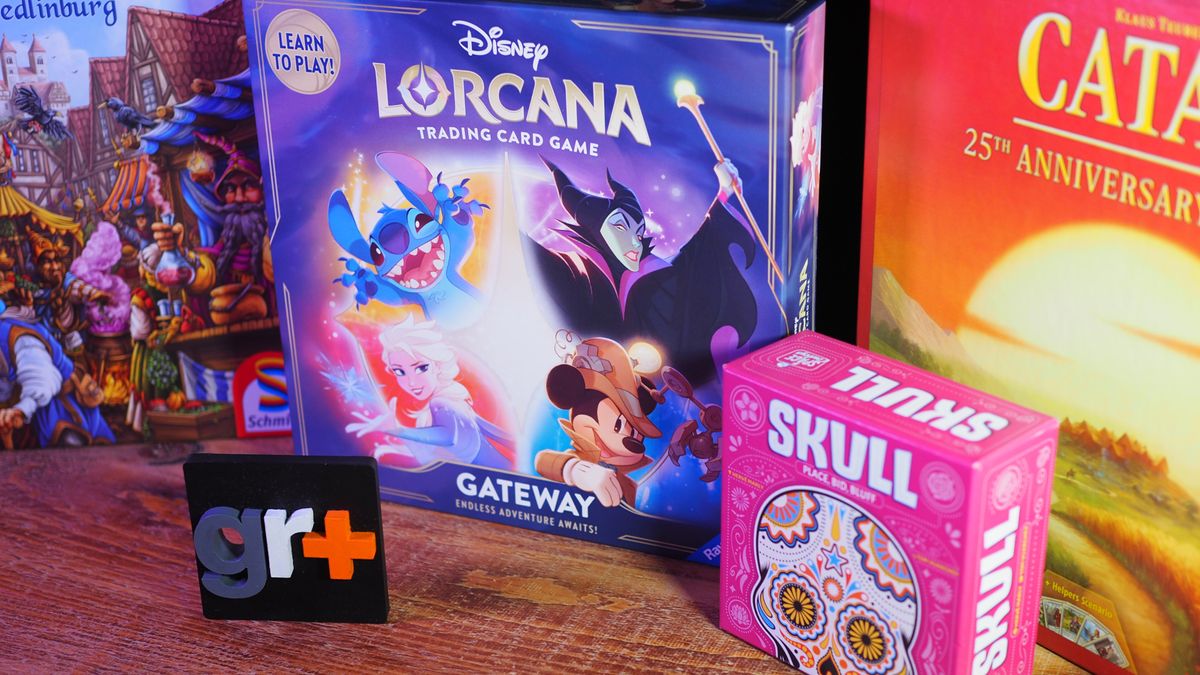
There are countless types of board games filling up shelves these days. Contrary to what some might think, we're not limited to those dusty classics your folks would break out after Christmas dinner anymore.
Because the terminology can be confusing (what the hell's a "Eurogame" when it's at home?), I've listed the most common types of board games below. There are examples for each definition as well, including many you can find in our guide to the best board games overall.
Naturally, some may disagree with these definitions. And that's OK! There isn't a universally accepted list of board game types, after all. However, this page zeroes in on the most common use of those terms, so it should serve you well as a baseline.
Abstract strategy
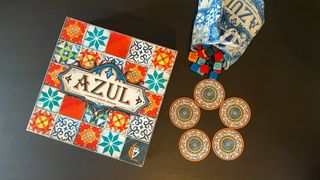
✅ No (or minimal) theme/story
✅ No hidden info
✅ Limited randomness
These games aren't as mysterious as the name would suggest. Indeed, classics like Chess and Go sit under this category. Basically, they're defined by three things: no or very little theming, everyone having the same info up front (AKA 'perfect/complete information' games), and a lack of randomness. Victory relies on skill alone.
Checkers is a great case in point. It's not 'about' anything, both players know where the pieces are and what they can do at any one time, and there's absolutely no luck involved. If you win, it's because you outmaneuvered your opponent.
Azul is a more modern example. It has the vaguest of themes (laying Portuguese decorative tiles), and players know everything they need to from the get-go.
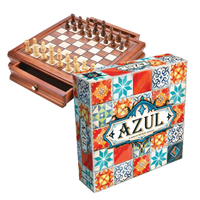
🎲 Chess
🎲 Hive
🎲 Patchwork
🎲 Azul
American-style/'Ameritrash'
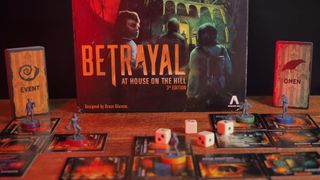
✅ Emphasizes theme/story
✅ Features player conflict
✅ Numerous ways to win
✅ A degree of randomness
OK, I know how this sounds. But hear me out – 'Ameritrash' isn't necessarily a negative term, and is often one of endearment in the community.
Sign up to the 12DOVE Newsletter
Weekly digests, tales from the communities you love, and more
On a surface level, American-style games put a lot of emphasis on theme. They include numerous ways to win as well, can feature direct conflict between players, and have some randomness in the mix (such as dice-rolling). While there are similarities with Eurogames, which we'll discuss later, they're frequently seen as opposites.
Betrayal at House on the Hill is what you'd call 'Ameritrash.' This horror-themed adventure leans on scary movie tropes and includes players beating the crap out of each other (in certain scenarios, anyway). There's a degree of randomness to decide what happens when you land on a specific space or draw event cards, too.
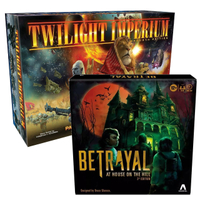
🎲 Zombicide
🎲 Twilight Imperium
🎲 Arkham Horror
🎲 Talisman
Area control
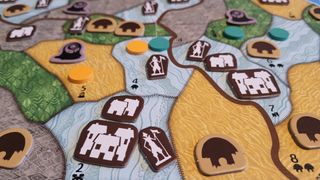
✅ Take over the board
✅ Spaces may offer benefits
✅ Usually player vs player
Based on the name alone, you may have a good idea of how these types of board games work already. Simply put, area control challenges you to take over – and keep hold of – as much of the board as possible. This is one for the armchair tacticians among you or those who enjoy something with a more competitive edge.
Risk may be the best-known example. It tasks players with conquering the world, and you'll move armies (represented by tokens) around the board for battles that decide who gets to own specific areas. Take command of certain spaces or control the majority of the board to win.
In contrast to wargames, area control focuses on the bigger picture. Indeed, the conflict is usually spread out over continents or kingdoms rather than a single battlefield. Horizons of Spirit Island epitomizes that idea. It's almost an inversion of classic area control; your aim is to remove invaders from your island rather than taking it over. In a rare twist, it's a team game as well instead of the usual head-to-head that defines this mechanic.
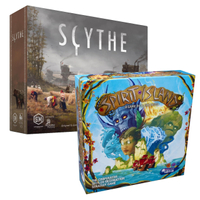
🎲 Risk
🎲 Spirit Island
🎲 Small World
🎲 Scythe
Auction/bidding
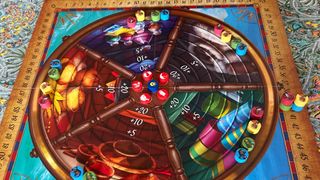
✅ Offer resources for an item
✅ Get the most points to win
If you enjoy wheeling and dealing, keep an eye out for auction games. These do exactly what they say on the tin; players try to outbid one another for valuables.
Although they can overlap with other categories, these games are defined by a central mechanic wherein items go up for auction and stay there until someone wins them with the highest offer. These resources usually have a variety of values or benefits that encourage different approaches. As an example, you might be able to collect multiple cheap but low-value items or expensive ones that are worth more in the long run.
For a better idea of how these types of board games work, let's turn to Medici. This fan-favorite casts you as a merchant trying to make their fortune, and you're able to bid on cards that represent different goods each turn. Points go to whosoever has the most of a specific item every round, or the most valuable haul. Your goal? Simple – earn the most points overall.
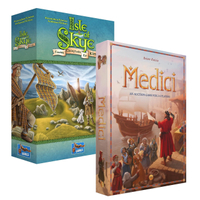
🎲 Isle of Skye
🎲 Power Grid
🎲 Ra
🎲 Medici
Bluffing
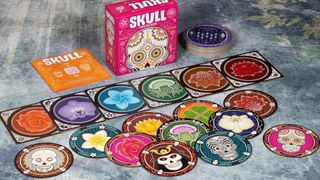
✅ Lie to get what you want
✅ Everyone's out for themselves
✅ No hidden roles
This is a similar style of game to social deduction (e.g. Mafia or Werewolf, which I'll discuss in a bit), but everyone is trying to deceive each other instead of uncovering traitors. Players must fool their opponents to win, and will often trick rivals into making a self-destructive move.
Skull is the bluffing game I make a beeline for if I'm in the mood to mislead. It has players betting on how many flower mats they can turn over before hitting a skull (which ends the round and removes one of their cards), so convincing everyone else that you're "trustworthy" before pulling the rug out from under them is lots of fun.
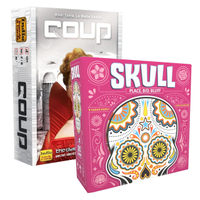
🎲 Skull
🎲 Blood on the Clocktower
🎲 Coup
City building
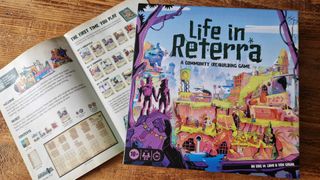
✅ Make & maintain a settlement
✅ Buildings may give bonuses
✅ Often lacks player conflict
Ever fancied creating your own metropolis? If you adore video games like SimCity or Cities: Skylines, these should appeal. Many games involve placing city tiles (such as Carcassonne), but proper city-builders focus more on what those buildings offer and a settlement's infrastructure.
Life in Reterra is a light-weight example, but a good one. You spend an average session putting down land tiles on which you construct buildings that provide abilities or bonuses to boost your score. These can combine for lucrative combos, so foresight is rewarded.
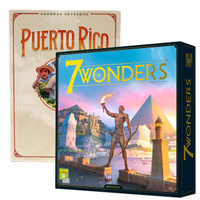
🎲 Puerto Rico
🎲 Life in Reterra
🎲 7 Wonders
🎲 Underwater Cities
Cooperative/team
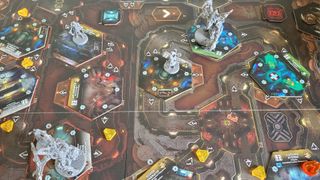
✅ Work on shared objectives
✅ Win or lose together
Here's a type of board game that doesn't mince words. The best cooperative board games aren't about scrambling over each other to victory; you need to work as a team in order to win. Lone wolves need not apply.
Nemesis: Lockdown shows that off nicely. Stranding you on a Mars space station overrun with deadly aliens, you'll have to strategize to be in with the faintest hope of navigating the facility and completing your objectives without being turned into shish kebab.
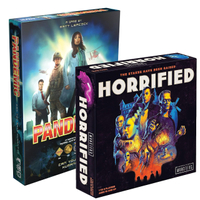
🎲 Horrified
🎲 Pandemic
🎲 Forbidden Island
🎲 Nemesis
Deck-building
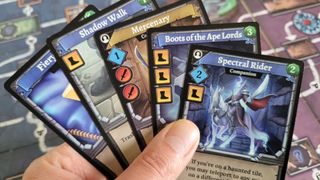
✅ You make a deck during play
✅ Add/remove cards in play
✅ Cards can be upgraded
As opposed to deck construction games that have you making your own card sets between sessions (such as Magic: The Gathering), deck-building is done during play. In fact, that's the core mechanic powering this type of board game; you'll spend the majority of any given match upgrading, removing, or adding cards to your deck.
2008's Dominion largely defined deck-building as we know it today, and modern hits such as Clank! Catacombs iterate on the mechanic. Basically, all of these games share a loop of collecting new cards that give you more actions, opportunities, or resources that often translate into points. Some add wrinkles to the formula (Clank! shakes things up with push-your-luck gameplay, for instance), but most follow the same recipe.
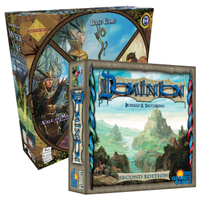
🎲 Dominion
🎲 Clank! series
🎲 Mystic Vale
🎲 Aeon's End
Deck construction
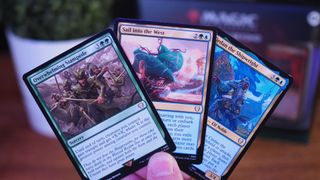
✅ Decks are made before play
✅ No adding to decks in play
✅ A vast array of possible decks
This type of board game is similar to deck-building, but there's a key difference; you create your deck using predefined parameters before play begins. You then use those decks against each other in a match, and they won't be altered or added to during the session itself. (You might be able to temporarily 'steal' your opponents' cards thanks to special abilities, but your core deck won't change.)
Favorites such as Marvel Champions make great use of this mechanic, but you'll find better examples via Magic: The Gathering or Pokemon. Most of their formats (aside from beginner boxes and pre-packaged Commander decks) involve players combining cards before a game, and that degree of customization has helped them become regarded as some of the best card games around.
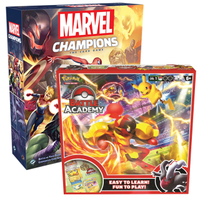
🎲 Magic: The Gathering
🎲 Pokemon TCG
🎲 Disney Lorcana
🎲 Marvel Champions
Dexterity

✅ Usually a physical activity
✅ ... but can be mental
✅ Reliant on speed
Much like abstract strategy, dexterity games don't usually involve lots of story (though there are exceptions we'll come to later). They're often quite quick as well, which is fitting considering how fast players have to be.
Take Jungle Speed, for instance. In this game, you place down cards and must grab the totem first if you see a match. Similarly, Spot It – one of the top board games for kids – has you rely on your wits by looking out for matches between your cards and the central pile before anyone else.
However, things aren't always that simple. What Next? employs many dexterity-based activities, for example, but these are wrapped in a choose-your-path story.
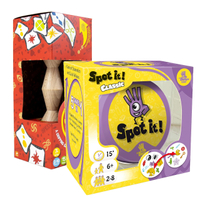
🎲 Jungle Speed
🎲 Ghost Blitz
🎲 Spot It!
🎲 What Next?
Draft
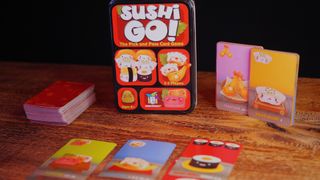
✅ Cards visible in 'open' draft
✅ Take and pass in 'closed' draft
Broadly speaking, there are two kinds of drafting game: open and closed. In open draft, players choose cards or items from a communal pool, furthering their own strategy or denying an opponent the same opportunity. The two-player 7 Wonders Duel is an example of open drafting; each person takes cards from a central pile that allow you to build up your strength in the military, commercial, science, or civil categories. Ticket to Ride is another case in point, albeit a less obvious one; while you don't have to, you can select cards from a communal row that allow you to place train tokens.
Closed draft, on the other hand, sees players take cards in secret and pass the rest along. Sushi Go is a classic closed draft; a pile of cards is passed from person to person, with each of you taking one until there's nothing left. Exploding Kittens puts a devilish spin on this kind of gameplay, meanwhile. Titular Exploding Kittens are hidden throughout the deck, and drawing them kicks you out of the game. While you can avoid these by using certain abilities or 'Defuse' cards, clever players are able to rearrange the pile and make sure their rivals draw an Exploding Kitten first.
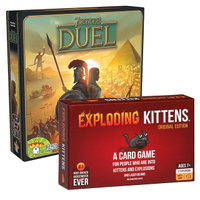
🎲 Sushi Go!
🎲 Ticket to Ride
🎲 Exploding Kittens
🎲 7 Wonders Duel
Dungeon-crawler
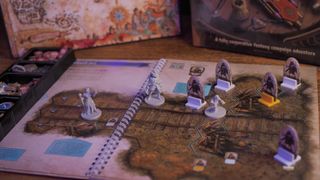
✅ Explore to find loot
✅ Involves combat, leveling up
✅ Has RPG elements
✅ Normally has a story
In dungeon-crawlers, good-old-fashioned adventuring is never far away. Alongside roleplaying mechanics such as leveling up or equipment that improves over time, this type of board game is defined by players progressing through an area (it doesn't have to be a dungeon) in search of loot or a specific objective. Branching storylines and a lot of miniatures go hand-in-hand with them, too.
Sure, HeroQuest was the king of this genre a few years back… but Gloomhaven has since stolen the crown. Its gameplay revolves around braving the dangers of this eponymous city, with the twist being that you only have a limited number of actions available during each mission. Your quest therefore becomes a game of chicken; how far do you dare go?
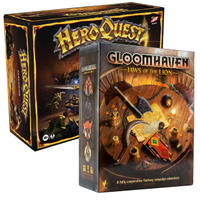
🎲 Gloomhaven
🎲 HeroQuest
🎲 Descent series
🎲 Mice and Mystics
Economic
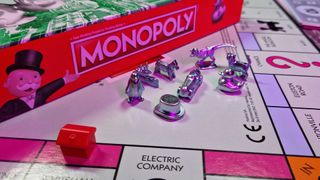
✅ About buying, selling, trade
✅ Make money to win
As you might expect, these types of board game revolve around trade or commerce. (They might feature other mechanics listed on this page, but economy is the focus.) Basically, it's all about buying and selling. You usually win if you collect the most wealth.
Monopoly is an obvious example of this mechanic; you move around the board purchasing properties and raking in cash from rent. Brass: Birmingham is a more modern spin on the genre set during the industrial revolution, while Twilight Imperium makes the economy a part of its multifaceted gameplay. The latter isn't solely focused on the rat race, but trade sure does make your life easier.
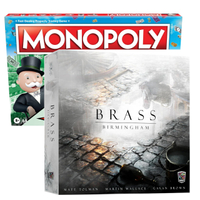
🎲 Monopoly
🎲 Brass: Birmingham
🎲 Twilight Imperium
🎲 Ark Nova
Engine-building
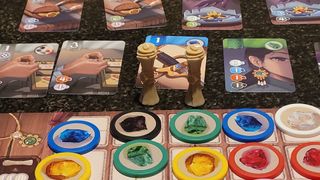
✅ Play stuff to get more stuff
✅ Basically a snowball effect
Stand down gearheads, this one's not about making a literal engine. Rather, it challenges you to create a system that'll earn you more resources as you go (or get you closer to your victory condition). This is your 'engine.'
In essence, it's a snowball effect; players place workers or resources which earn them something. This allows them to purchase and place more workers/resources. The more you have, the more you can get.
Wingspan is a rock-solid engine-builder. You play bird cards that allow you to generate resources or other benefits, and these often let you collect more birds (and so on). Similarly, Splendor Duel sees players collecting gem tokens that are used to buy cards for specific bonuses.
Sound familiar? There's a lot of crossover between engine-building and worker placement games, which I'll get into later.
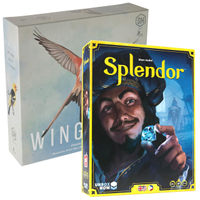
🎲 Wingspan
🎲 Splendor
🎲 Everdell
🎲 Terraforming Mars
Eurogame/Euro-style
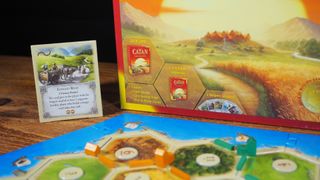
✅ Multiple ways to win
✅ Less player conflict
✅ Lacks randomness
✅ Less of a theme/story
In the world of tabletop, Eurogames are arguably the most significant development of the last few decades. While it's a broad category, many 'hobby' or modern strategy board games live under this banner.
Although the term was coined because this type of board game originated in Europe (or Germany, to be precise), being European isn't a prerequisite. Instead, the key factors include multiple ways to win, a lack of randomness, replayability, players not being 'eliminated' from the game, and less direct conflict. Listing designers and artists on the box is another hallmark, as is less emphasis on theme. There is still a theme, yes, but it's less important than the mechanics.
Take Catan. This is considered to be a Eurogame (and was one of the first, actually) because it eschews randomness in favor of strategy. Players aren't battling directly against each other either, and there's more than one way to earn points.
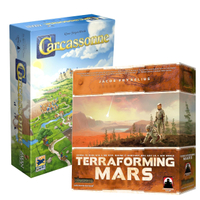
🎲 Catan
🎲 Carcassonne
🎲 Takenoko
🎲 Lords of Waterdeep
Investigation
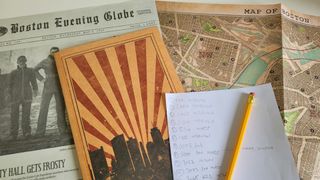
✅ Solve a case
✅ Immersive props
✅ Played alone or in teams
Are crime dramas your jam? Do you always head to the thriller section of a bookshop? You should give investigation games a go, because they'd be right up your street.
These typically have you working alone or as a team to solve mysteries, murders, or assorted maladies. Props you'll search for clues might be included within the box too, and there's usually a time-limit.
The Sherlock Holmes: Consulting Detective series is amongst the best-known investigation games, but Bureau of Investigation is also great. It requires genuine teamwork to crack, and its props are deeply immersive.
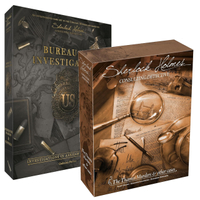
🎲 Sherlock Holmes: Consulting Detective
🎲 Bureau of Investigation
Legacy/campaign
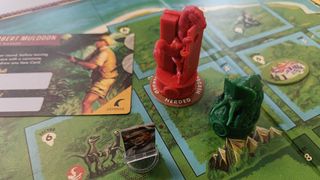
✅ Ongoing campaign
✅ Permanent changes
✅ Unlockable elements
While this is often called out as a specific type of board game, it's more of an umbrella term that other mechanics sit under.
For the most part, Legacy games feature an ongoing campaign or will track your progress in some other way. (The Legacy versions of Pandemic are a notable example, because the consequences of every session carry into the next.) There's a distinct 'end' to this story as well, and your decisions are permanent; you may alter or destroy game components along the way. As a result, you'll probably only run through this game's campaign once… though the process will likely take months.
Unlockable elements are another hallmark of Legacy games, be it abilities, scenarios, or characters. This is part of the reason why Legacy games are often dubbed 'experiences.'
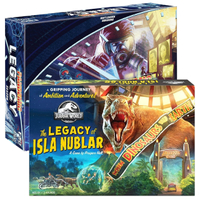
🎲 Pandemic Legacy
🎲 Betrayal Legacy
🎲 Jurassic World: The Legacy of Isla Nublar
Push-your-luck

✅ Hold your nerve for rewards
✅ Win big, or lose it all
Are you feeling lucky, punk? These types of board games will put that confidence to the test. The longer you can hold your nerve in a space or the further you go into enemy territory, the bigger your reward. Or, you could lose it all…
One of my favorites games of this kind is The Captain is Dead: Dangerous Planet. Your star-trekking crew of redshirts must push into bug territory in order to find relics, but the more you explore the tunnels, the more danger you'll be in.
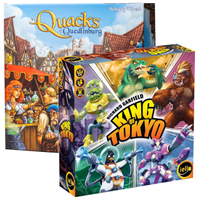
🎲 King of Tokyo
🎲 Quacks of Quedlinburg
🎲 The Captain is Dead: Dangerous Planet
Roll-and-write
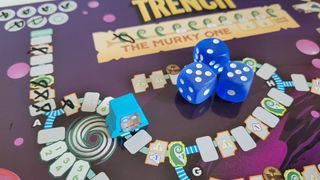
✅ Roll dice, record results
✅ Often portable
This type of board game finds its roots in Yahtzee. The name is a spoiler, really; you roll dice and write down the results on a pad or whiteboard. They're normally portable as well.
While Yahtzee is pretty insular (players don't interact with one another and are instead trying to build the highest score), modern roll-and-write games tend to be more social. Twilight Inscription combines puzzle elements with 'council votes' that will help some players and disadvantage others.
Not that you need to play roll-and-writes with others, of course. Bargain Basement Bathysphere is a solo game you can tackle at your own pace and throws in push-your-luck elements to keep things spicy.
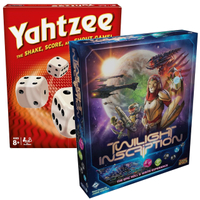
🎲 Pandemic Legacy
🎲 Betrayal Legacy
🎲 Jurassic World: The Legacy of Isla Nublar
Social deduction/hidden role
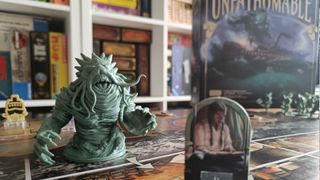
✅ Usually has two teams
✅ Uncover hidden agents
✅ ... or sabotage the group
These board games are designed for amateur sleuths, and usually involve hidden roles where one or more players are working against the rest in secret. The aim is to uncover those traitors, or go undetected. It's like a formalized version of wink murder and Mafia.
You'll find no shortage of social deduction games on shelves right now, but my go-to remains Secret Hitler. Set in Germany before World War 2, most players are card-carrying Liberals attempting to root out Nazis while a handful of Fascists hope to gain power. The trouble is, those Liberals don't know who the Fascists are. This means lies and backstabbing are the order of the day.
Unfathomable is another excellent social deduction game. Once again, there are traitors amongst the group; most are innocent passengers on a 1920s cruise ship, but a couple play the role of 'hybrids' who hope to sink it in honor of their Lovecraftian masters.
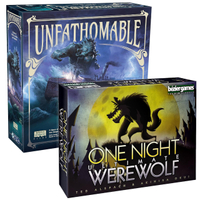
🎲 Unfathomable
🎲 Secret Hitler
🎲 One Night Ultimate Werewolf
Trivia
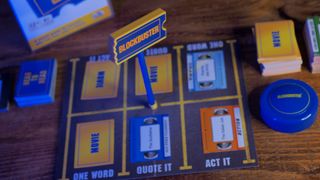
✅ Answer questions for points
✅ Usually involves teams
✅ General or niche knowledge
This is one of the best-known types of board games, and it's the king of parties. Most of the time, you'll answer questions about a specific topic to earn points. Players may be divided into teams, but needing your thinking cap is always guaranteed.
Whereas some trivia games become outdated fast thanks to very of-the-moment questions, the likes of Articulate! stand the test of time because they are universal (animals and nature are unlikely to have changed too much in the next 10 years, after all). Blockbuster: The Game gets around this issue too by leaning on your ability to recall movie titles rather than obscure facts.
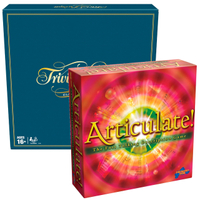
🎲 Articulate!
🎲 Trivial Pursuit
🎲 Blockbuster: The Game
🎲 Linkee
Wargame
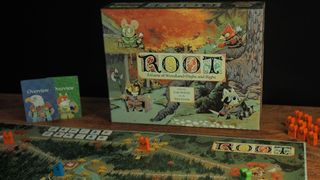
✅ Involves military conflict
✅ Varies in scale
✅ Normally player VS. player
Simply put, wargames have you crossing swords (or firearms, I suppose) with one or more players. It's a vast spectrum ranging from historical battles to fantasy conflicts, but military actions are always the focus.
Wargames typically use one of three scales: skirmishes involving a few fighters, larger battles featuring hundreds of troops, or theater-wide campaigns. Different strategies are needed for each of them, and the latter tends to be less action-oriented; because you may be dealing with a continent-spanning war, it's about positioning, supply lines, and logistics rather than troop-to-troop duels.
Let's wheel out a couple of examples. The likes of Undaunted: Battle of Britain has you controlling individual planes as they clash high above, using dice rolls to determine whether you hit a target. At the other end of the scale, Root puts you in command of an entire faction as it vies for control of a kingdom.
Even though they're not board games in a traditional sense, the likes of Warhammer and Star Wars: Shatterpoint qualify as wargames too. These stand apart thanks to their emphasis on building and painting your own models rather than using standard tokens. They really zoom in on a unit's individual abilities too, providing far more tactical versatility that lends itself to competitive play.
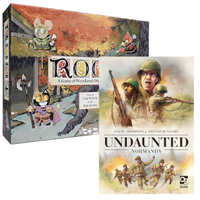
🎲 Undaunted
🎲 Root
🎲 Warhammer
🎲 Kings of War
Worker placement
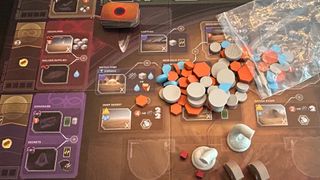
✅ Place to gain resources
✅ You can block actions
✅ Similar to engine-building
As the name would suggest, worker placement board games are all about positioning tokens (AKA your 'workers') so that they can earn you points, secure resources, or trigger some sort of reaction. Doing so might also allow you to purchase or place more workers using the resources you've gathered. The animal-themed Everdell lets you place workers to gather building materials or cards, for instance, and the more recent Dune: Uprising – Imperium is similar.
Either way, worker placement games commonly feature the blocking of actions – or, at the very least, limited actions per turn. (There's some debate surrounding this definition, but I'll stick with it for now.) As an example, Agricola only allows one player to use a specific action each turn. That makes it crucial to keep an eye on what your opponents are doing, because you can stop a rival in their tracks by using up an action they need.
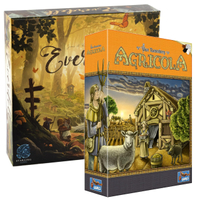
🎲 Agricola
🎲 Everdell
🎲 Dune: Imperium
🎲 Keyflower
Want some recommendations? Be sure to check in with these 2-player board games and family board games.

I've been writing about games in one form or another since 2012, and now manage 12DOVE's tabletop gaming and toy coverage. You'll find my grubby paws on everything from board game reviews to the latest Lego news.
